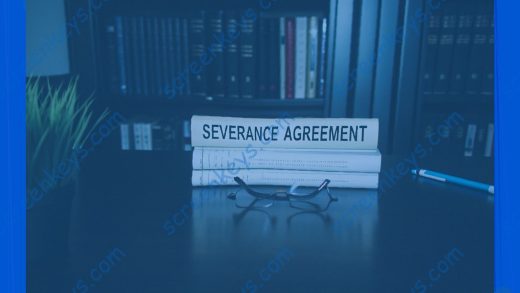Summary of Repossession Laws
A fundamental concept in consumer credit, traditional repossession refers to the legal process wherein a creditor reclaims a physical asset due to default or breach of an obligation by the individual who purchased or financed the asset. State and federal laws in Texas govern the process of repossession through statutes regulating the different types of contractual agreements. While repo may seem like a free for all for creditors and lenders, Texas law provides that repossession can be legally accomplished without the need for a court order provided that the creditor does not breach the peace or cause a public disturbance in repossessing the collateral. A lender or creditor may gain physical possession of the collateral provided they do so in a public space and avoid personal confrontations of the debtor or other occupants of the property. However, if a public confrontation is not avoided in the repossession, the debtor may then recover possession of the collateral through court action.
Replevy can be employed to recover possession from the debtor to obtain possession of the repossessed collateral. Replevy provides the debtor with a procedure for obtaining possession of collateral following a breach of the peace by the seller . The action is commenced pursuant to Uniform Commercial Code § 9-609(b) which states: On receiving a demand by the debtor, a secured party that has made repossession shall tender possession of the collateral to the debtor. If the secured party refuses to comply, the debtor may recover possession of the collateral before the creditor. Exclusion from recovery is permitted when the secured party knowingly repossesses collateral in violation of subchapter D of the UCC. Subchapter D governs the Possession of Collateral.
The secured creditor is responsible for notifying interested parties of its claim to possession of the collateral. This may include posting of the collateral, publishing notice of the collateral in the property and general creditor’s section or dissemination of notice through the internet. Replevy should not be confused with seizure. Seizure may be accomplished with or without prior notice, while replevy requires notice and an opportunity to be heard in court. Replevy is a remedy available post repossession that allows the debtor to regain possession of the collateral following breach of peace by the creditor in securing the collateral. Notification to interested parties is permissible by mail, phone and other general means. The consumer can file an action under federal consumer protection laws to award damages to them as a result of the actions of repossession.
What Can Be Repossessed?
In Texas, many different types of property can be repossessed provided that the repossession is lawful. In legal parlance, this type of property is called secured property or collateralized property. Some Texas laws also use the term security interest. If you have a deed of trust or a mortgage, your lender has a security interest in your real estate. Similarly, if you have a car loan, then your bank has a security interest in your automobile.
Any time that you are required to pledge property as collateral for a debt, that property is considered secured. In the case of real estate, the technical term is a lien. In the case of personal property, the technical term is chattel. If a person goes to a pawn shop, the transaction is considered borrowing money; however, the pawn shop keeps the item as collateral. As a practical matter, a pawnbroker has a security interest in the item, and it is capable of repossession.
Broadly speaking, anything can be repossessed as long as it is set forth in the security agreements. Most security agreements in Texas are broad enough to repossess any type of property as long as the property is kept in Texas. The devil is in the details, and the security agreement may be limited in some manner.
Cars, trucks, and boats are commonly repossessed items in Texas. Furniture, televisions, and appliances may also be repossessed if they were included in the original paperwork. Bíblia and and other religious texts may not be repossessed as well.
The Process of Repossession
Texas has a unique set of statutes and bolstering case law that address the type of security interests subject to repossession, the legal rights and remedies of the secured parties and their debtors, and the process and procedure required to effectuate repossession.
When an owner of collateral (excluding exempt property) grants a security interest to a secured party on their asset(s), in exchange for a loan of money or credit, and after default by the debtor, repossession of the collateral typically follows. The process of repossession allows a secured party to retake its collateral for the purpose of retention or ultimate disposition after a default by the debtor. If properly executed in accordance with the requirements of the UCC, repossession has the effect of avoiding litigation and eminent domain by allowing a secured party to realize on its collateral without recourse to the state. And provided that all requisite state law requirements have been met, these remedies are available to a secured party regardless of whether the debtor has lost possession of the property via a breach of the peace.
Practically speaking, the process is straightforward: If the debtor defaults according to the security agreement, the secured party may take possession of the collateral. She may do so by either executively repossessing the collateral herself (if possible, and it does not breach the peace), otherwise, she may proceed through judicial process.
Execution by Judicial Process:
Last years’ amendments to the Texas Civil Practice and Remedies Code section 31.002 govern the execution procedure. Section 31.002 allows a secured creditor in good faith possession of collateral to request the following:
1) THAT, after a hearing, the trial court issue a turnover order compelling the debtor to surrender the collateral, and
2) THAT the debtor turn over certain property.
At the hearing, the secured party must be able to demonstrate to the court that the enforcement order is needed to protect her interest in the collateral. If the collateral is real estate, a secured party may seek the court’s writ of sequestration instead of a turnover order allowing for the secured party to pursue the remedy of a conventional real estate foreclosure.
Executory Repossession:
In lieu of executing a judicial order to obtain the collateral from the debtor, a secured party may proceed by executing a self-help remedy of repossession. Because repossession involves a potential breach of the peace, it amended to being executed at night or between the hours of 9 a.m. and 8 p.m. Moreover, the secured party may not use "breach of the peace," to take possession of the collateral (except in the event of a lender holding over in a non-judicial foreclosure sale.) However, to ensure that the SOD takes possession in a manner that does not breach the peace, she may utilize a locksmith to break and enter any private building, locked garage, shed, or outbuilding in order to take possession of the collateral. In the event that the debtor litigates and obtains an injunction within ten days from the date of the repossession, the secured party may be held liable for statutory and actual damages by the trial court. In sum, some of the critical requirements of the repossession process are that the secured creditor must give a demand for delivery of the collateral to the debtor, and allow a reasonable time to comply.
Debtor Rights and Duties
Debtor Rights and Responsibilities
As a debtor, you have the right to receive notice of the location and repossession of any collateral relating to the loan. The creditor has the right to collect the debt owed, but within the confines of the law.
The creditor must abide by the Fair Debt Collection Practices Act, which applies to the collection of consumer debts, and makes it illegal for a debt collector to use any fraudulent methods to induce the debtor to pay. Actions that violate the Fair Debt Collection Practices Act include threatening violence, using profanity, misrepresenting the debt, or contacting the debtor at inconvenient times or locations, or on multiple occasions.
Debtors also have a right to redeem their repossessed property. In Texas, the debtor can redeem the property at any time before the foreclosure sale. The debt collector must give you notice of your rights to redeem the collateral, including the procedures to do so.
Lenders must also give debtors notice before repossessing any property. This is typically accomplished through a notice in the finance contract, which states that the lender may repossess the vehicle without giving further notice of default, and that any later payments to obtain repossession of the collateral does not mean the borrower has not defaulted. A service must also be made to the borrower or on the borrower’s attorney, or if the borrower can’t be found, then the notice must be placed on the property.
A debtor has alternative options to prevent repossession. If the debtor cannot make any further payments, the debtor can transfer title of the property to the lender. Alternatively, the debtor can request that additional provisions be added to the loan to allow him or her more time for payments. The debtor can also arrange for a payment plan with the creditor.
If the creditor has contacted you about repossessing your property, and you believe it is in error, one recommended option is to contact the creditor to inform them of the error, and request that they give a written statement confirming that the debt is paid. Once you believe that you have paid the debt, it is best to obtain a written statement from the lender stating that the balance is paid in full.
If you have already settled your debt with the lender and you believe you’ve complied with all applicable guidelines above, then you may have grounds to file a lawsuit against the creditor for passing your debt to an unauthorized individual, for violating a court injunction against selling the property, or for violations in the manner of its repossession.
Creditor Rights and Duties
In the context of Texas repossession laws, creditors face numerous rights and obligations. The creditor has the right to repossess a vehicle without going to court if the debtor is in default and there is no breach of the peace. But this right is not absolute, and repossession must be conducted reasonably and without incident. The UCC, § 9.609, governs the disposition of collateral and provides, in relevant part: Except as otherwise provided for in this section, a secured party may take possession of collateral . . . Only without breach of the peace, may be taken without judicial process. Of course, when collateral is repossessed without going to court to obtain an Order of Replevin, the creditor cannot use or threaten to use force, or any means of coercion to repossess the collateral. The creditor also cannot take collateral from the person’s home without consent or court order.
If repossession without incident cannot be obtained, the UCC, provides that a court replevy of the collateral may be granted as a matter of right under Texas law. UCC, § 34.001-2. "A person has a right to a judgment directing the immediate possession of specific personal property if after demand the property is not delivered to the person with a written undertaking signed by the applicant complying with the Texas Rules of Civil Procedure . " Id.
In order to attach a vehicle on a writ of replevy, a creditor must file a suit in district court and allege an immediate right to possession of the collateral, the amount of debt in default, and any claims to same by third parties. The debtor must be served with a copy of the suit and summons, and fail to return the vehicle to the creditor within five days. The creditor’s right to possession of the vehicle must be superior to the debtor’s right to possession. Creditor’s should request a determination the buyer’s security interest is superior to the collateral’s security interests, a hearing within 10 days after the filing of the suit, and a hearing on the merits within 15 days after the filing. On remand, a court will determine the superior right and whether the creditor is entitled to a judgment of possession and a judgment on the undertakings.
Creditors should also be aware that property being repossessed by a creditor is property of the debtor. Once the debtor files a bankruptcy under 11 U.S.C. 101 et. seq., all activity directed at this property is stayed pursuant to § 362. If the creditor attempts to reclaim the property (or has already seized it) during the automatic stay, the creditor may be liable for damages arising from the violation of the automatic stay.
Repossessing Your Texas Property – How to Avoid It
Avoiding repossession begins with being proactive in the credit and borrowing process, and refinancing debt is one way to minimize the risks. Instead of simply paying the minimum balance on a card, a debtor may be able to reduce monthly payments by consolidating multiple credit accounts into one. Depending on the terms of the new loan, monthly payments could actually decrease, making repayment manageable. Those who are struggling to budget for high interest rate credit payments may want to consider a home equity loan; if approved, the funds can be used to repay high interest credit accounts and car loans, putting the borrower in a better position to make timely payments and avoid repossession. Debtors who have repossession orders pending or who simply want to explore their options for avoiding repossession should consult with their attorney. In some cases, creditors will be willing to negotiate reduced payments or deferred interest as means to avoid repossession, and an attorney can help those without knowledge of the law to understand the terms of agreements they are contemplating. A bankruptcy filing stops foreclosure actions, so persons who are at risk of repossession should also contact an attorney to discuss their case. Even if a person does not file for bankruptcy, filing a lawsuit can also prove helpful in sometimes surprising ways. For example, if the creditor has violated the Fair Debt Collection Practices Act, an attorney can help the client recover fees and costs, thereby freeing up the funds that would otherwise go toward excessive interest rates and fees.
The Consequences of Repossession
Recognizing that the lender/creditor will certainly report the debtor to one or more credit reporting agencies, which can have an impact on the debtor’s credit score. It may also impact the ability of the consumer to seek credit in the future. Repossession stays on a credit report for seven years (which is usually less than the life of the contract), and lenders, creditors, and even potential landlords often check credit scores when making decisions.
In addition to the impact to a debtor’s credit report, there are also fees and personal liability associated with repossession – all of which are meant to incentivize the debtor to pay off the debt. Costs to repossession can be up to $1000 or more, depending on the value of the collateral and/or the nature of the asset to be repossessed. These costs are almost always recovered from the debtor by the lender. A repo agent’s fees and lien filing fees, totaling "collected for the benefit of a proceeds or lien creditor from members of the Association and/or any other persons or entities shall not exceed the following schedules . . .." Any debtor, whether consumer or commercial, might be subject to collection fees over $3000, plus any court cost, attorney’s fees, and sheriff’s fees, expended by the repo company in carrying out their duties as a creditor.
If the debtor does not pay the money owed after repossession, the creditor/lender may sue to recover the amount owed. If the debtor fails to appear in court or fails to pay the judgment, a judgment may be obtained against the debtor. If a creditor obtains a judgment, and that judgment is affirmatively collected, the debtor will also be hit with court costs and attorney’s fees.
As a result, the financial consequences of repossession are two-fold: the immediate impact on the debtor’s credit score, and the additional fees incurred if a collection action is necessary.
How to Contest an Illegal Repossession
If a debtor suspects that a repossession was unlawful, they have a right to challenge it. The UCC allows a debtor to sue for damages, such as the value of the property that was wrongfully repossessed as well as the actual cost to the debtor for the harm. (UCC § 9-625.) While a debtor can sue for damages, this does not guarantee that a court will find for the debtor. The UCC also allows debtors to get back unlawful charges by seeking an injunction in a court of law. An injunction asks the court to order the creditor to stop an action – such as repossession – that the debtor believes to be unlawful. A debtor can seek an injunction in both a state and federal court. Even an oral or verbal request for an injunction can be enough for a court to find in favor of the debtor.
The appointment of a receiver is another , less common legal avenue that allows debtors the chance to have a repossession invalidated. Appointing a receiver gives a third party control over the repossessed property. This judicial process sets up a system of checks and balances within a creditor-debtor relationship. In order for a third party to be imported, the debtor must convince the court that one: (1) the creditor’s actions are likely to injure the debtor; or (2) money damages would be an insufficient remedy for this injury. (UCC § 9-601(a).) The court may also consider the nature of the creditor-debtor relationship and whether or not it is a fair and equal bargaining position.




